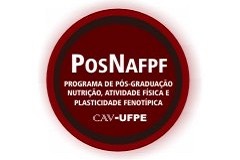 Visor de contenido web
Visor de contenido web
The Post-graduation “Nutrition, Physical Activity and Phenotypic Plasticity” (PPGNAFPF) is a thematic and multidisciplinary program inserted in the area of Nutrition (CAPES), Brazil. The PPGNAFPF is composed by two areas of investigation: (1) Experimental and clinical studies on phenotypic plasticity; (2) Environmental modulator factors of phenotypic plasticity. The main objective of PPGNAFPF is to improve our understanding of this important area of research and to develop new treatments and preventive strategies for a better care of the population.
Areas of Concentration
(1) Experimental and clinical basis of phenotypic plasticity
Description:
To study, in a transdisciplinary way, the association between the critical periods of development and the appearance of metabolic diseases in adult life. To describe the cellular and molecular mechanisms involved in the early onset of diseases in adult life associated with nutritional and pharmacological disorders occurring in the perinatal period.
Lines of research:
A) Biological mechanisms of the phenotypic plasticity
Description:
To study the physiological basis of phenotypic plasticity for the understanding of the mechanisms underlying the early onset of metabolic diseases and eating behaviour disorders.
B) Nutritional status and the risk of non-communicable diseases
Description:
To study the nutritional conditions in humans and experimental animal models and the biomedical implications of the early onset of non-communicable diseases, including cardiovascular diseases, diabetes type II, chronic lung disease, allergies, cancer, cognitive deficits, osteoporosis, sarcopenia and behavioural disorders.
(2) Environmental modulator factors of phenotypic plasticity
Description:
To study the probable consequences of the incidence of nutritional factors, physical activity and others during vulnerable periods of the growth and development trajectory from fetal life to adulthood. To study the influence of environmental factors, active lifestyle and balanced nutrition, as intervention mechanisms modulating the effects of phenotypic plasticity reducing the risk of non-communicable diseases.
Line of Research:
C) Nutrition and Physical Activity during development
Description:
To study the interaction between nutritional status and environmental factors on performance in humans and experimental models. To describe the re-programming role of the physical training in organisms submitted to eating disorders. To study the modulating effects of the consumption of different types of diet and/or of the engagement in physical activity programs during the peri-gestational period and the repercussions on the growth trajectory of the offspring.
----------------------
Phenotypic plasticity is the ability of an organism to respond the environmental demand by changing the physiology and morphology. It is the environmentally sensitive production of alternative phenotypes by given genotypes. Phenotypic plasticity comprises genetics, development, behavioural science, ecology, evolution and can include physics, mathematics and physiology. The main question is to ask how and why plasticity occurs. This post-graduation program reflects our new understanding that plasticity is a powerful means of adaptation. Alternative alleles or their products react differently to the environment; those with favourable reactions persist while others go extinct. This mechanism produces flexible organisms that respond to environmental shifts with beneficial phenotypic changes.
In the context of phenotypic plasticity, we have special interest in the study of the effects of perinatal environment stimuli (nutrition, physical activity) and the molecular, cellular and behavioural consequences on the offspring during development. Our PPGNAFPF develops research with experimental models, clinical trials, and epidemiology. Our focus is to understand the underlying mechanism associated to phenomenon of phenotype accommodation and the relationship with early appearance of metabolic diseases, such as: hypertension, obesity and type II diabetes.
PPGNAPF is a center of excellence that congregated the major research forces in the field of Nutrition, Physical Activity and Phenotypic Plasticity in Pernambuco, Brazil. Gathering 16 important researchers, including scientists in the basic area and experts in the clinical trials to strengthen the interactions between experimental research, biomedical and clinical research and intervention studies. Our main goal is to develop technological platforms (molecular biology and imaging analyses), which will involve scientist and students. Thus, PPGNAFPF provides a distinctive environment to conduct translational and multidisciplinary research.





